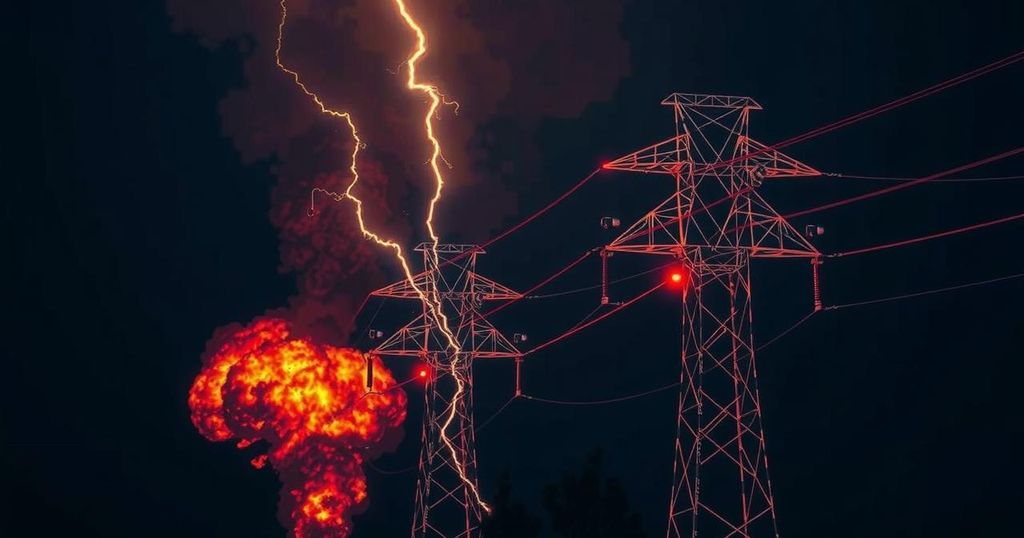Simultaneous Blackouts in Zimbabwe and Zambia Highlight Power Challenges
Zimbabwe and Zambia experienced nationwide blackouts on Sunday night due to a power surge affecting their connections to South African utility Eskom. The blackouts occurred minutes apart, and power restoration efforts were underway, with significant progress reported by Monday morning. Both countries face ongoing power generation challenges, underscoring the fragility of their energy infrastructure.
On Sunday night, both Zimbabwe and Zambia experienced nationwide blackouts attributed to a power surge impacting the transmission lines connecting these nations to the South African power supplier, Eskom. The outages were sequential, with Zambia losing power at 8:15 PM followed closely by Zimbabwe at 8:25 PM. The Zimbabwe Electricity Supply Authority (ZESA) confirmed the situation, stating, “The national grid experienced a system disturbance resulting in a nationwide blackout,” while Zambia’s power utility, ZESCO, indicated that a similar disturbance led to the loss of power across their country.
Efforts to restore power began promptly, with ZESA reporting substantial progress by early Monday morning. The company stated, “The restoration process began immediately, and we are happy to advise that as of this morning, most of the load centers (regional substations) have been picked countrywide.” By 3 AM on Monday, power was reestablished in most regions of Zimbabwe, providing much-needed relief to citizens after they faced a night of darkness.
The outage was reportedly caused by a surge in voltage along the transmission lines from South Africa, from which both countries import electricity. In light of their severe power deficits, Zambia has increased its electricity imports significantly. Eyewitness accounts indicated flickering lights prior to the complete blackouts, suggesting prior instability in the power supply system.
This incident occurs amidst ongoing power supply challenges in both Zimbabwe and Zambia. The Kariba hydroelectric plant, a crucial power source for both nations, has experienced reduced production capacity due to low water levels. Furthermore, Zimbabwe’s aging thermal power stations frequently malfunction, causing residents to endure daily power cuts that can last for 18 hours. Zambia similarly faces challenges in meeting power demand, resulting in frequent outages that disrupt both businesses and households.
Sunday’s simultaneous blackout emphasizes the fragile nature of the regional power infrastructure, greatly relying on shared resources and susceptible to systemic failures. Strengthening grid resilience and diversifying power generation sources are critical for both nations as they continue to grapple with their energy crises.
The dual blackout occurring in Zimbabwe and Zambia highlights the challenges faced by both countries in maintaining a stable power supply. Both nations rely heavily on electricity imports from Eskom in South Africa, and their infrastructure has been considerably stressed due to various factors including aging facilities and environmental constraints affecting their main sources of energy. Understanding the context of these dependencies provides insight into the systemic issues leading to such outages.
In conclusion, the simultaneous blackouts affecting Zimbabwe and Zambia are indicative of deeper systemic issues within their power infrastructures. With reliance on a singular source of electricity imports and beleaguered local generation capabilities, both nations must prioritize solutions that enhance energy independence and reliability. Addressing these vulnerabilities is crucial for economic stability and to mitigate the disruptive impact of future power outages.
Original Source: bulawayo24.com




Post Comment